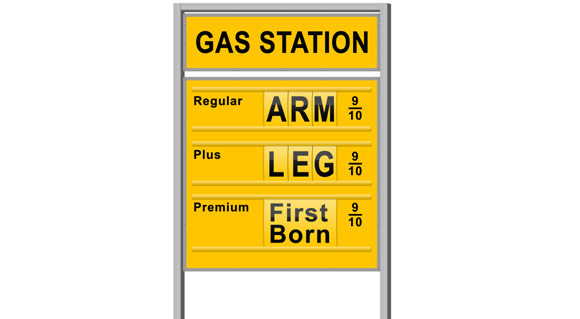These days you need the wealth of kings to live in Queens. It now costs more money to live in Queens compared to many major cities including Washington DC, Bridgeport, CT and San Jose, CA. A recent study produced from City Council Speaker and Mayoral candidate Christine Quinn, The Middle Class Squeeze, reveals that Queens is one of the most expensive places to live in the entire country.
According to the report, housing costs in Queens are two and half times the national average. All of the City’s suburbs analyzed in the study have housing costs lower than Queens. Housing is more expensive than many major American cities, including Boston, Chicago and Miami. We should not be optimistic that somehow the high salaries of New Yorkers have offset the costs of housing in New York. According to the report, “housing costs have grown faster than median middle-class income – especially the price of purchasing a home, which has risen at three times the rate of income.”
The report goes on to say that the high cost of living contributed to a rise in the number of renters among middle class New Yorkers, which rose from fifty-one percent of middle class households in 1999 to fifty-five percent in 2011. These percentages do not include all renters but just what the study classifies as “middle class households.” What the report does not say, but what can be asserted, is that many people who own single family homes make the decision to rent their basements or individual rooms in their homes in order to offset the increased cost of owning a home in New York City.
The City Council and Speaker Quinn failed to address the fact that the City has raised property taxes eleven times in ten years. If you owned a one to three family home in 2003 in New York City you were paying about twelve percent of the assessed value in property taxes. Today those same homes pay over eighteen percent of their assessed valued. Amazingly, property taxes increased twice in a single fiscal year (2008-2009). Money needed to pay the bills must come from somewhere. Increased apartments in a neighborhood of single family homes can cause significant issues, such as a decrease in neighborhood property value, as well as minor but frustrating inconveniences, like finding a parking spot close to your home after a long day of hard work.
It is not just housing which costs more in Queens compared to other areas of the country. Everyday living in Queens takes more of our hard earned dollars out of our pockets compared to other cities. The American Chamber of Commerce Research Association (ACCRA) conducts an annual study of local price indices for different cities and towns across the United States. Based on their research, groceries cost 25 percent more in Queens compared to the national average; 50 percent more compared to the city of Houston. Total monthly expenses of a husband, wife and a child age six to seven-teen is $3,000 more in Queens compared to the national average.
There is no indication that the situation will be improving any time in the foreseeable future. New York City will likely face budget gaps year-to-year. As Manhattan Institute scholar Nicole Gelinas has documented, City spending has increased dramatically during the Bloomberg administration. “In Mayor Rudy Giuliani’s last budget, city spending clocked in at $34.2 billion in today’s dollars (not including federal and state grants). In the fiscal year that starts in July, New York will spend $53.3 billion. That’s a $19.1 billion increase after inflation — or nearly 55.8 percent.
The City’s solutions in previous years have been one-time fixes, such as selling new taxi medallions. Previous budget gaps have also been filled with money, which was set aside during times of economic expansion. However, as difficult economic times continue, it may be necessary to re-examine the City’s entire economic model. Incentives for businesses startups, especially in emerging technology fields would be a good start. Unfortunately, I doubt this will occur. It is more likely that we will see the City attempt to nickel and dime its residents to financial death. Increased fees and regulations on small businesses, increased parking tickets for alternative side of the street parking, even if it has been awhile since we’ve seen an actual street cleaner, increased transportation fees and any other means of acquiring the money of workers will be the unspoken for understood policy of the government. These are the actions of a government devoid of new ideas. It is the actions of the desperate.
This upcoming election, November 2013, we have the opportunity to debate the problems confronting this City. We will have a new Mayor for the first time in twelve years and the entire City Council will be up for re-election as well. We need leaders who are capable of understanding the problems confronting our City and are capable of offering solutions, which can garner enough support to become policy. The high cost of living in Queens and the rest of New York City has been years in the making. It will take vision and leadership to reverse these trends. Are your current elected representatives up for the challenge?



